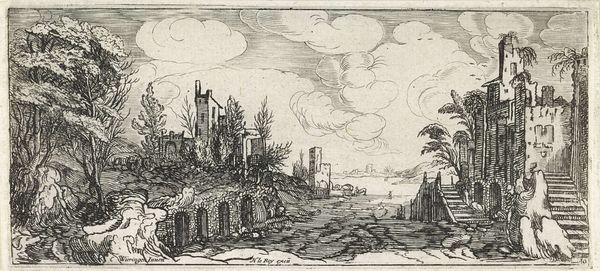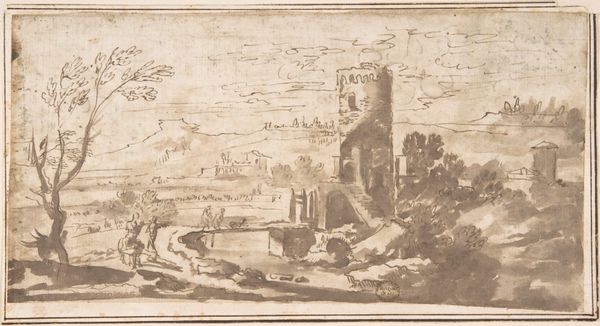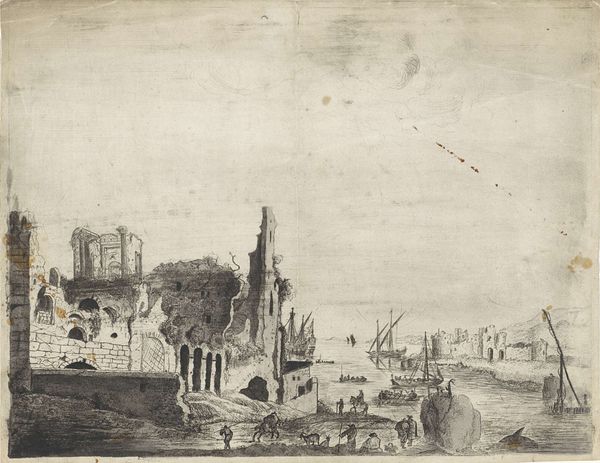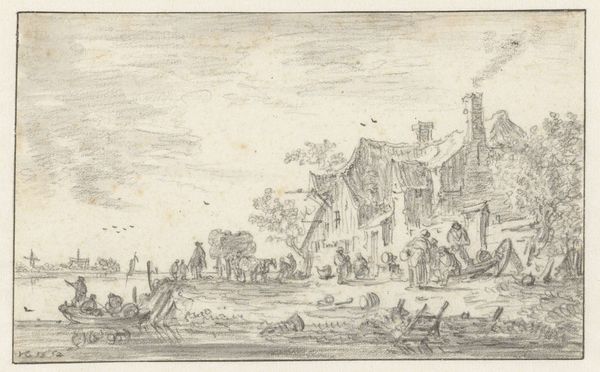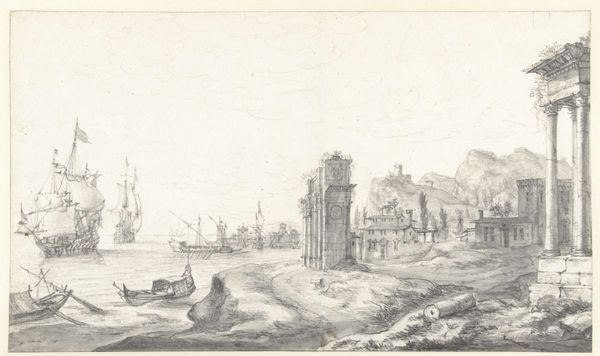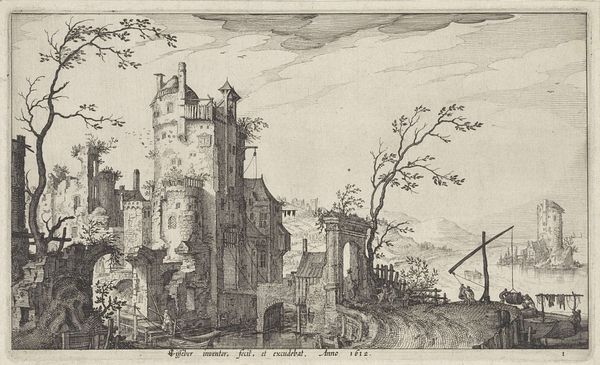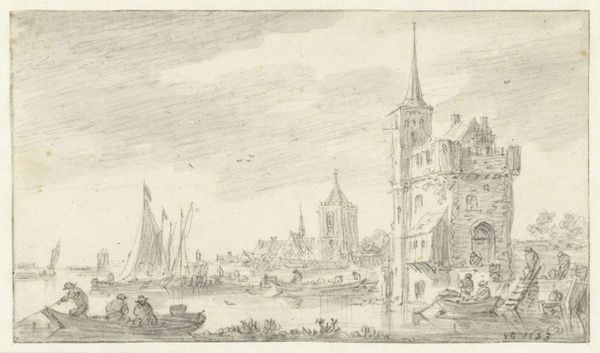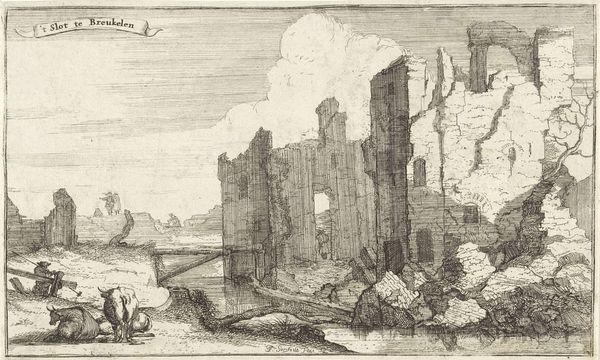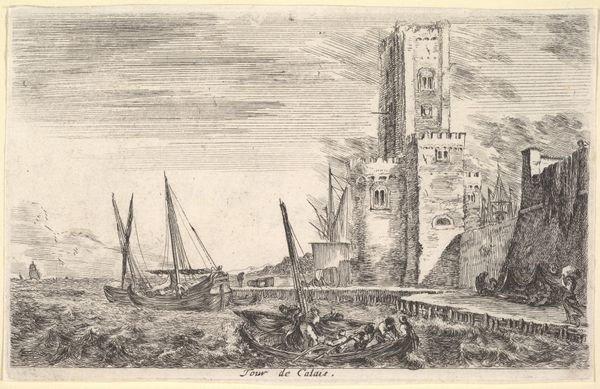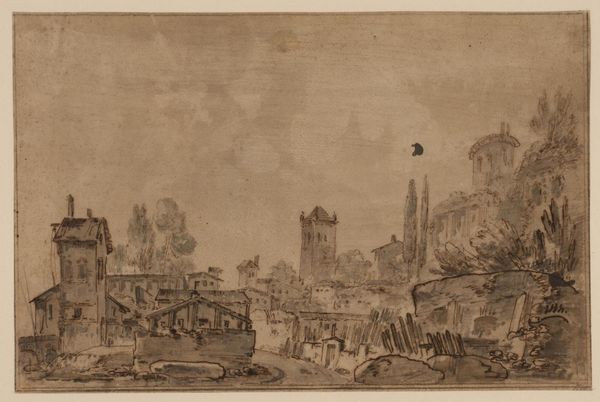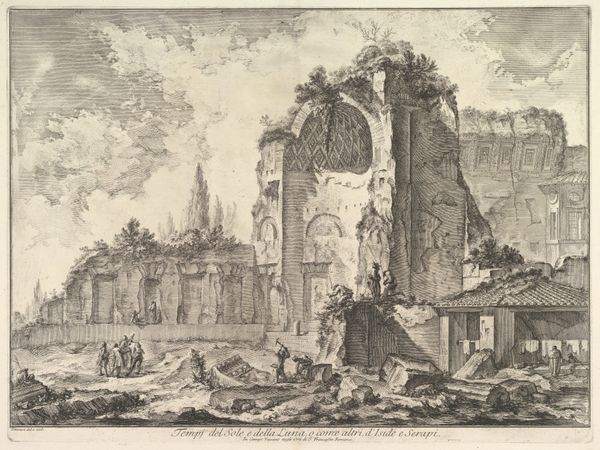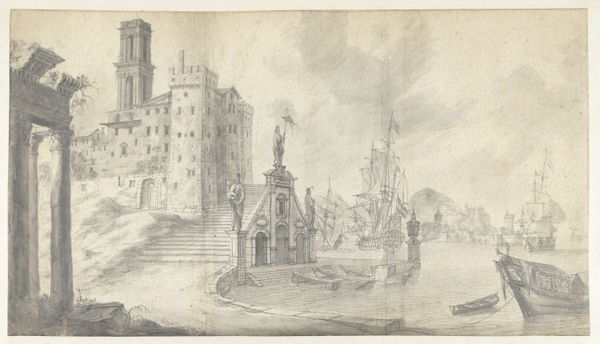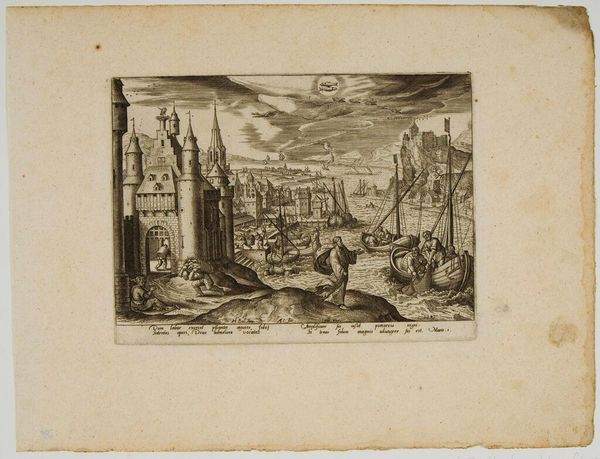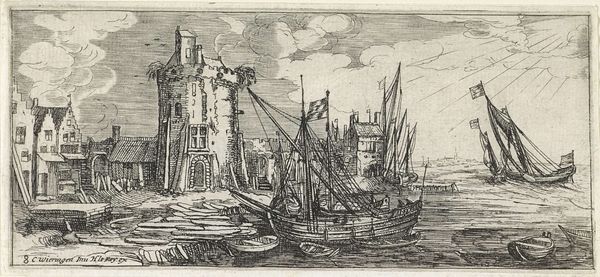
drawing, pencil
#
drawing
#
baroque
#
pencil sketch
#
landscape
#
charcoal drawing
#
pencil
#
cityscape
#
history-painting
Dimensions: 311 mm (height) x 405 mm (width) (bladmaal)
Editor: This is Augustin Coppens’ pencil drawing, Bruxelles efter bombardementet i 1695, dating from 1695 to 1795. It depicts Brussels after it was bombed and the city looks so destroyed! I find it really captivating, but also mournful. How do you interpret this work, especially as it relates to history? Curator: It’s compelling, isn’t it? The image speaks of trauma and resilience. Consider the symbolism of ruins: they aren't just absence but also echo the power that once was, like a ghost in the city. The marks of war, of the bombardment, are a kind of writing, a cultural inscription. Editor: So the destruction becomes a visual language? Curator: Precisely. The Baroque loved spectacle, and even devastation became a spectacle of sorts, but consider this specific event. It points to larger conflicts, the shifting power dynamics of Europe, the price of ambition and the suffering of ordinary people caught in between. Note the contrast between the towering remnants and the figures in the foreground. What do you notice? Editor: They seem so small and vulnerable amidst the debris. It emphasizes the human cost. Curator: Yes, and that scale is deliberate, it underscores the insignificance of individuals when nations clash. It becomes a meditation on impermanence. This pencil sketch memorializes a catastrophic event. So what do you feel the symbolic function of an artwork such as this may be? Editor: To remind us, perhaps? To make sure we don't forget what happened, or the consequences of conflict. I am now thinking differently about what an artwork is or can be. Curator: Indeed. And to ask, always, "at what price?" An effective history lesson in symbolic form.
Comments
No comments
Be the first to comment and join the conversation on the ultimate creative platform.
